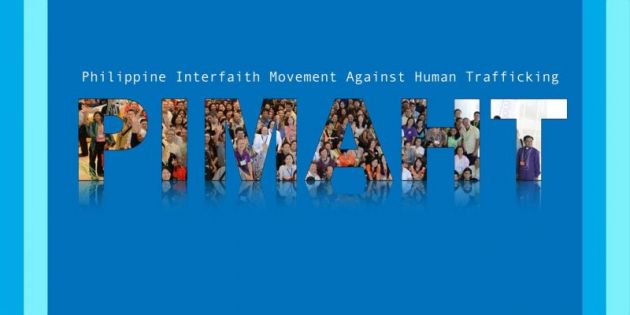Catholic, evangelical group challenges president of Philippines over human trafficking

A group of Catholics, traditional Protestants and evangelicals in the Philippines has challenged President Rodrigo Duterte to end human trafficking by stamping out corruption by state officials in a country where many people live in modern-day slavery.
The Philippine Interfaith Movement Against Human Trafficking, also known as Pimaht, met on July 31 to commemorate World Day Against Trafficking in Human Persons, UCA Catholic News reported.
Formed in 2012, the group is made up of the three largest Christian organizations in the Philippines -- the Catholic Bishops' Conference of the Philippines, the National Council of Churches in the Philippines, and the Philippine Council of Evangelical Churches.
"We need to intensify our campaign against this [human trafficking] modern slavery by addressing its root causes," the group said during the seminar.
"People are poor, yes, but human traffickers give money to corrupt officials for protection. President Duterte must fire them from their posts."
Pimaht views human trafficking as an issue of poverty but also of corruption that gives syndicates the courage to prey on young people.
OFFICIALS TURNING A BLIND EYE
When government officials are corrupt, they turn a blind eye to syndicates who abuse minors the group says.
"There's a need to look at the economic angle. But more than poverty, human trafficking is an issue of corruption. When government officials are corrupt, they turn a blind eye to syndicates who abuse minors," the group noted.
An estimated 784,000 out of a total population of about 102 million in the Philippines live in modern slavery, according to the Global Slavery Index.
Transparency International ranks the Philippines 115th out of 179 countries on its corruption index.
The government recently claimed the Philippines has met the "minimum standards" in efforts to eliminate the crime despite reporting a rise in trafficking cases.
It pointed to the country maintaining its Tier 1 status in the 2021 Trafficking in Persons Report released by the U.S. State Department in July.
The report also says, however, "Although the government meets the minimum standards, it did not convict any officials for complicity in trafficking crimes and did not vigorously investigate labor trafficking crimes that occurred within the Philippines or provide training to labor inspectors on the indicators of trafficking.
"The government also identified fewer victims than the previous reporting period and resources for law enforcement and specialized services for victims remained inadequate."